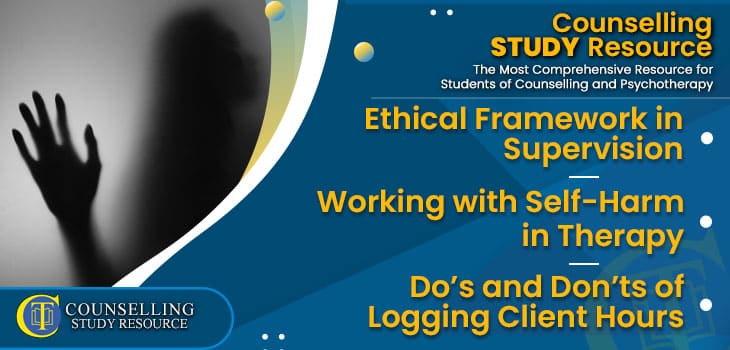See Counselling Skills Used in Real Sessions by Qualified Therapist
Real Sessions – Real Presentations – Real Skills
Gain the competence and confidence to use counselling techniques effectively!

In Episode 292 of the Counselling Tutor Podcast, your hosts Rory Lees-Oakes and Ken Kelly are back with this week’s three topics:
Discussing Ethical Frameworks in Clinical Supervision
When in supervision, the ethical framework is something that should come up regularly in relation to your topics of discussion. In this section, Rory and Ken highlight some of the reasons this can be so important:

Real Sessions – Real Presentations – Real Skills
Gain the competence and confidence to use counselling techniques effectively!
In this week’s ‘Practice Matters’, Rory speaks with Kate Day about working with clients who self-harm.
The key points of this discussion include:

On-demand access to a rich lecture library covering theory, skills, and professional development for counselling students—Mapped to the UK awarding body criteria
“The Student Library has been BRILLIANT, I can’t recommend it enough!
It has been a lifeline in helping me prepare for practice and my first clients. If you’re considering it, go-for-it, it’s absolutely worth it!”
Kelly – Graduated and now in practice.
When in placement to become a qualified counsellor, don’t let logging your hours incorrectly hold you back. In this section, Rory and Ken take us through some of the dos and don’ts of logging your client hours:
Discussing Ethical Frameworks in Clinical Supervision

Get on-demand Certified CPD that is implementable in your practice
